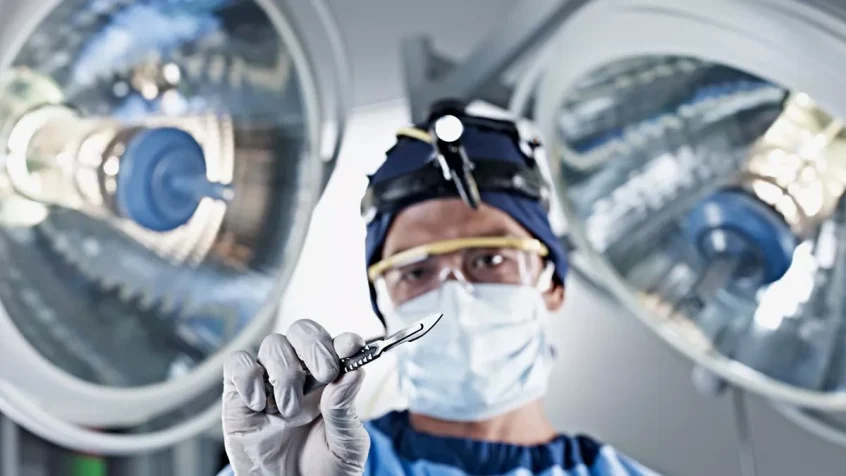Since we already have virtual surgery to train surgeons in mastering intricate robotic techniques, the arrival of scalpels with built-in sensors to streamline training for surgeons doesn’t seem that far fetched.
Honestly, it’s mind-boggling. UK researchers studied data captured by this smart scalpel during trials and found its sensors could accurately track how much force users were applying during surgical procedures, and how they were controlling the device over time.
The scalpel could assess the user’s skill as effectively as traditional evaluation methods, which involve visual assessment by experienced examiners. Further development could mean the scalpel is used to assess a range of surgical skills and further the creation of robotic devices that can perform procedures safely and efficiently, the team at Edinburgh University School of Informatics said.
While the level of force applied is known to be important in surgery, there have been few tools until now capable of measuring it. According to the developers, these types of measurements have also never been used in traditional assessments of surgical skill.
The low-cost device consists of a scalpel connected to a sensor-loaded circuit board fitted inside its handle. The team designed a machine learning model that analyses data captured as force is applied by users.
They tested the technology by tracking 12 medical students and two surgeons as they carried out a procedure known as an elliptical incision. This type of incision, which involves making two curved cuts in the skin, is used to remove moles and skin cancers such as melanoma.
Tests were performed on synthetic material made of gelatine and silicone that looks and feels like human skin. Data analysis of each participant’s skills was compared with naked eye assessments made by four surgical experts – two neuroscientists and two plastic surgeons.
Results broadly matched the surgical experts’ assessment of each user’s ability, suggesting this type of technology could help simplify the task of assessing surgical skills. In other words, it could give the green light when a surgeon is ready to operate on patients.
Professor Ram Ramamoorthy from the School of Informatics said: “We are excited to develop this system which uses real-life sensing technology and machine learning methods to quantitatively assess surgical skill. It will enable the development of new systems for skill assessment and training, and could one day lead to the creation of automated surgical devices that can assist surgical teams.”

